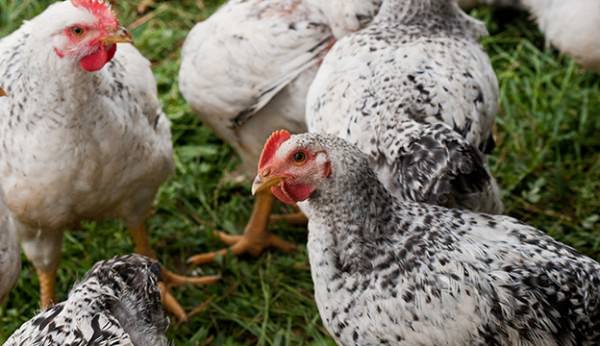

Many people begin raising organic chickens to help them achieve a simpler, healthier life for their families. By simply raising your own birds in your backyard, letting them free range, eat on grass, and then supplementing that with feeds from your local feed store, you can achieve a much healthier and happier bird.
However, this may not be truly organic. In a lot of ways it is up to you to determine what constitutes raising organic chickens
Poultry or poultry products must come from chickens that have been under organic management from the second day of life. If you cannot verify this you are not raising organic chickens.
All feed, except minerals and vitamins, must be organically produced. Non-synthetic vitamins are preferred, but synthetic sources are allowed if non-synthetics are not available. Animal byproducts from mammals and poultry, such as meat and bone meal, may not be included in rations. Fishmeal and crabmeal are not permitted, because of the difficulty of determining if they were organically produced. Synthetic amino acids are not permitted. Non-synthetic but non-agriculturalproducts such as oyster shell and diatomaceous earth are permitted.
The handling of feed ingredients must comply with organic requirements. Some people may buy organic feed, but organic guidelines must be followed with either choice.
– No drugs may be used to promote growth.
– Physical alterations such as beak trimming and toe trimming are permitted to promote the welfare of the animal or flock. These are still discouraged and would be handled on a case by case basis.
– Living conditions must be established and maintained to accommodate the health and natural behavior of poultry, including access the outdoors, shade, shelter, exercise areas, fresh air, and direct sunlight.Continuous confinement in cages is not permitted, but temporary confinement is allowed if adequately justified.
– Dry and clean bedding are a requirement. Any bedding that is of a type typically consumed by poultry must meet all organic standards.
– When raising organic chickens measures must include preventive practices such as good nutrition, sanitation, healthy living conditions, and vaccination. Antibiotics are not permitted. Synthetic parasiticides including coccidiostats are not permitted. Although some natural alternative products are allowed, health problems must be controlled primarily through good management.
– Birds that become sick cannot be withheld from medical treatment just to preserve their organic status. They should be medicated and then sold into the conventional marketplace.
– Chicken manure must be managed in a way that does not contribute to contamination of crops, soil, or water and that optimizes the recycling of nutrients.
 Contact Jaguza Support
Contact Jaguza Support